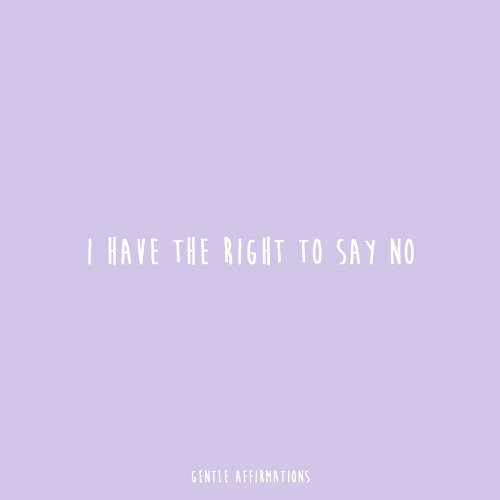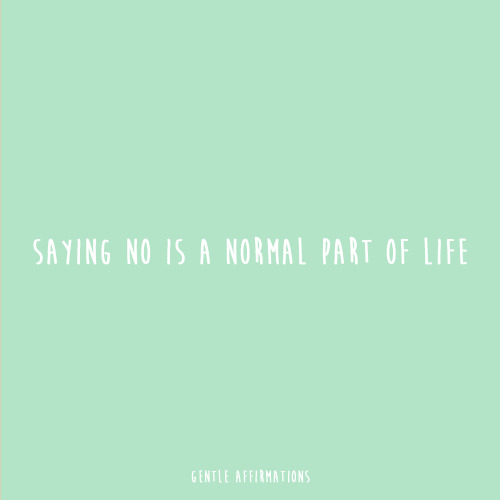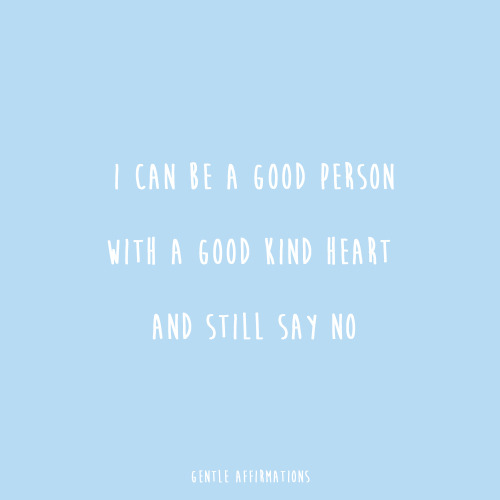#saying no
Mind Map #42: [My Rights]
Disclaimer: This is loosely based off of a document called The Personal Bill of Rights and I don’t know who wrote that document.
Post link
“Never say no when you really want to say yes.”
Stormy, Always and Forever
Without saying “I’m sorry.”
1. “I wish I could help but my plate is pretty full right now.”
2. “I have said yes to too many things lately and I’m honestly overwhelmed at the moment.”
3. “I am not accepting any new tasks right now.” (I use this a lot and even though it is firm, I get positive responses because it’s relatable).
4. “I am over-committed right now, but I hope you find the help you need.”
5. “That’s my night to spend time with my family but thank you for asking me.”
6. “I’d love to but my schedule is packed right now.”
7. “That’s not a good day/time for me.”
8. “That’s not really my area, but thank you for thinking of me.”
9. “I’m honored but I can’t this time.”
10. “Thank you but this isn’t something I’m able to take on right now.”
11. “I am needed somewhere else that day, but thank you.”
12. “I am limiting my commitments right now.”
13. “I am honestly not able to dedicate the time right now.”
14. If you are disabled: “Spoons are low, so today is not a good day for this.” (try using “bandwidth” instead of “spoons” if you are not disabled so we can preserve the meaning of “spoons.”)
15. “That’s not a good fit for me, but (offer a genuine alternative).”




Setting boundaries : Saying NO
Setting boundaries can be difficult. It’s easier said than done, and often, when the situation changes, our boundaries seem to change too.
That guy who you can’t get out of your mind ghosted you for two weeks, so you decided to forget about him - now he’s texting you again. And your boundaries? Forgotten.
Someone who you don’t particularly like keeps asking you for dinner. What do you do? Reluctantly go against your will.
You’re placed in a position where you either have to betray your actual self for the validation or fear of upsetting someone else.
Boundary setting wasn’t easy for me, either. I used to be a very shy child - saying no was impossible.
Here’s how I’ve grown from that mindset:
1. Tell yourself saying no is cool.
I don’t know why repeating this to myself had a positive effect, but it did.
“Saying no makes you cool.”
Practice with small situations to be able to cope with larger ones.
- saying no for a second/ third helping at dinner
- saying no if you’re not in the mood to drink or smoke
- saying no if you don’t like what the salesperson is showing you
Unfortunately we live in a world where saying no is very slowly being accepted as “polite.” Had this been taught to us as children, it would’ve been easier to handle as adults.
2. Tell yourself this is a simulation.
Sometimes it’s very difficult to say certain things that you want to say. I like to tell myself that I’m in a video game or a tv show and that this is just what I’m supposed to say. “No.”
3. Anticipate the future responses.
A lot of people think that saying no is an opportunity to convince you to say yes.
“Would you like to drink?”
“No, thank you - I’d rather be sober tonight.”
“What! Why? It’s a party! Have you tried this wine? It’s seriously so good, have a couple of sips!”
I think this mentality comes from toxic hustle culture - “never accept no!” “Keep grinding!” “Try again and again even if you fail!” - so you need to anticipate this.
For this reason, keep your guard up. Nine out of ten times, the person who’s asking you is going to persist. Be prepared for it.
Here’s a couple of tips:
- Make a slight face and say “no thanks.” If you look hesitant, they WILL convince you further.
- Be very confident. Keep your posture straight. Shoulders broad. Have a neutral expression when they try to convince you.
-thank them at the end. In my experience, I’ve noticed that if I thank them for “being understanding”, they immediately drop it. Why? Because you’ve given them the validation they need.
“What! Why? It’s a party! Have you tried this wine? It’s seriously so good, have a couple of sips!”
“Oh, no thanks. I’m really not in the mood to drink tonight, thank you for looking out though!”
4. If you’re going to go to an event, or you’re going to have a difficult conversation with someone- plan it out.
Let’s say I have to confront a cheating boyfriend. Here’s what I’d write down in my Notes app:
‘He’s cheated on me with X on X date, at X venue.
He’s going to deny it at first. I need to stay calm and persistent, and not back down.
He’s going to try to convince me that I’m crazy. This is the phase I know I’m getting through to him, because he’s changing his tactics. Again, I need to be as blank faced as possible and refuse to give in.
He’s going to then try to emotionally manipulate me. He may blackmail or bring up the past. He may tell me that I don’t trust him. He’ll try to push the blame on ME.
I have to be aware of how he’s going to react. I need to be calm, absolutely calm until he breaks and confesses everything.
My goal of this conversation is to get him to confess and break up with him.”
Planning it like this helps, because now you have something secure. Here’s a guideline for the same :
1.Describe the situation briefly. (What happened exactly? What do you know? What have other people told you? Do you have evidence?)
2. Note down how you think they’ll react. Would they get defensive or angry? Would they lie? What would YOU do if you were in their place? (Come up with all possible scenarios).
3. Write down solutions for every situation.
“If X starts lying, I’ll say this : “____”.”
“If X denies it, I’ll bring up this screenshot.”
“If X starts to blame someone else, I’ll wait until they’re done speaking and then tell them I already spoke to that person.”
4. What is the goal of this conversation?



“Half of the troubles of this life can be traced to saying ‘yes’ too quickly and not saying 'no’ soon enough.”
- Josh Billings


![Mind Map #42: [My Rights] Disclaimer: This is loosely based off of a document called The Personal Bi Mind Map #42: [My Rights] Disclaimer: This is loosely based off of a document called The Personal Bi](https://64.media.tumblr.com/tumblr_mdn8bxcsiw1ru4tgjo1_500.jpg)



